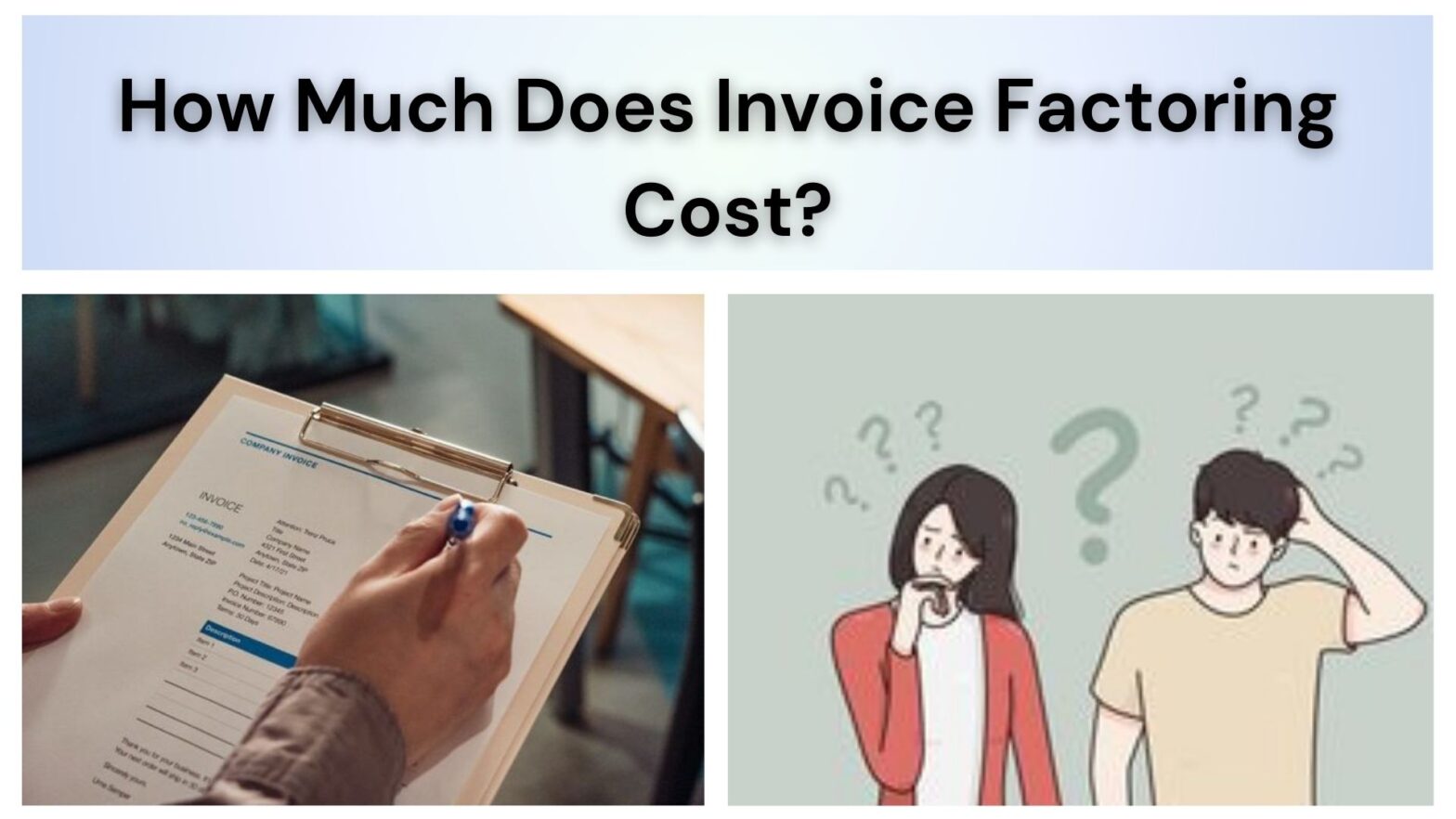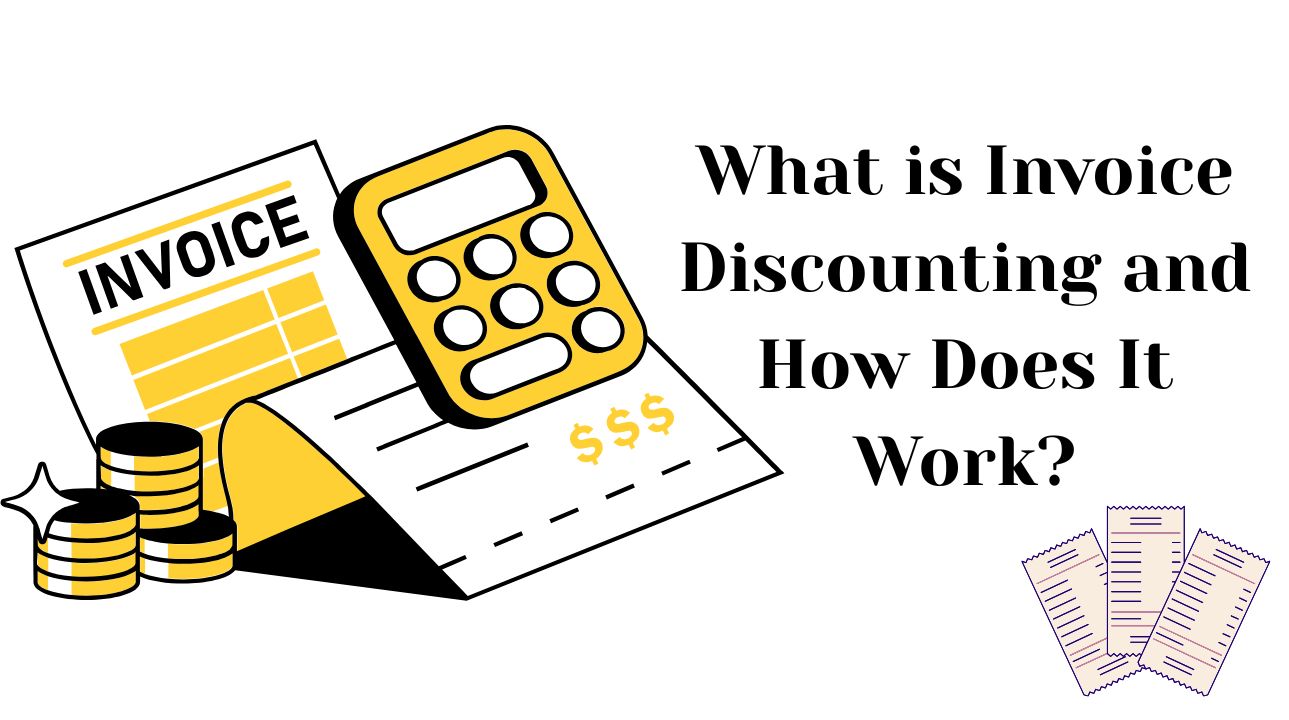Most of the small and medium-sized businesses rely on accounts receivables. Selling items to your customers on credit is a common trend, but businesses are unexpected. Before your bills are paid, you may come across a big amount of money. Taking out business loans is not always a good solution, especially when you need to fill the gap in working capital. Here comes the role of invoice factoring.
Invoice factoring is the most convenient way to fill the working capital gap. You will borrow money against the unpaid invoices. You cannot get the full value against your invoices. Most lenders will lend you up to 85% of the invoice value, while a few may offer up to 90%. It completely depends on the policy of the invoice factoring company.
Many entrepreneurs often get worried about the cost they will have to bear. Well, there is no straightaway answer to how much it will cost. The total cost of invoice factoring mainly depends on the discount rate and the length of the factoring period. The discount rate varies by 1.5% and 5%. The invoice cost will be higher if the factoring period, the timeframe you give to your clients to pay, is longer.
Invoice factoring costs and other charges
Here is what is included in the invoice factoring cost:
Discount rate
The discount rate is the fee that you pay to an invoice factoring company. It is similar to the borrowing concept from your bank. Finance charges will be levied when you borrow money from a bank, which may be weekly or monthly. The discount rate varies between 1.5% and 5%.
It depends on the invoice financing company and how much they will charge. They particularly consider the amount of invoices and the credibility of your customers. The discount rate will be lower if you have got high-quality and higher-value invoices.
Factoring period length
The factoring period length can be between 30 and 90 days, depending on your company’s policy and the invoice value. The payment cycle is short when invoice value is small. In some cases, it cannot be more than two weeks.
The invoice factoring company will charge you more money if the payment period is longer. Invoices with a 15-day payment period will cost you less than those with 45 days.
Other factoring charges
There are additional costs as well you may have to pay such as:
- Service charge
- Origination fees
- Credit check fees
- Collection fees
- Overdue fees
- Termination fees
Factors that affect the cost of factoring
Some of the most common factors that invoice factoring companies include:
The invoice value
Bear in mind that the collection cost will be passed onto you, so it makes more sense to have fewer large invoiced funded rather than lots of smaller ones. Consider wisely which invoices you should be financed.
Your business niche
Your business niche and track record of payments will also be carefully checked by your invoice finance company. Certain industries are considered risky, and hence, higher service charges and other fees will be levied.
The reliability of your clients
You will likely end up paying lower fees if your clients are reliable. The factoring fees will be quite higher when your customers have a poor credit rating or track record of making a default. In some cases, the fee amount does not change, but high overdue fees are imposed.
Your business reliability and turnover
Many factoring companies are more willing to fund a business that has years of experience under the belt. Start-up companies will struggle to get invoice factoring because they cannot prove their loyalty.
Turnover is another factor. You will benefit from lower discount rates or service charges if your turnover is high. It proves your reliability. You can even negotiate for lower interest rates.
Before choosing an invoice factoring company, you should do proper research. Compare their service charges and other fees to know how much it will cost you. Each company follows different terms and conditions. Check carefully to ensure that you are eligible for invoice factoring. Consult invoice finance brokers. They will help you pick the best invoice finance company.
Business loans can be an alternative
Invoice factoring is not an ideal solution if you have lots of invoices of a small value and you need a larger sum. It is generally used when you need a small amount of money to fill the gap in working capital.
If you want to buy equipment or space, this is surely not a good way to finance your needs. For larger needs, you should rely on business loans. They can be used for various purposes. Small business loans that are repaid back in 18 months are not secured. However, those that come with a longer repayment plan will require you to put down collateral.
You should contact online business loan brokers in the UK if you cannot pick the right lender for your business needs. A broker will conduct soft checks to know your repayment potential and, based on that, will offer you a lender. The whole paperwork and other formalities will be done by your broker for which they will charge fees. Some brokers charge fees from lenders, too, who pass it on to you, so make sure you carefully examine the upfront cost you pay to your broker and then your lender.
The final word
It is hard to determine the exact cost of invoice factoring because it depends on a number of factors, such as your customers’ loyalty, business niche and experience. Each company follows its own fee structure. Make sure you carefully research it beforehand.
It is always suggested that you contact an invoice financing broker because they will help you pick the one that suits your requirements. You should also try to consider other alternatives in case you need a large amount of money.
Business loans might be a good option if invoice financing cannot solve your purpose. Remember that loans are not a permanent solution to your working capital problems. You will have to identify the cause and brainstorm ideas to fix it.

Gary Weaver is a Senior Content Writer with having an experience of more than 8 years. He has the expertise in covering various aspects of business market in the UK, especially of the lending firms. As being the senior member, he contributes a lot while working at TheBusinessFunds, a reputed business loan broker.
Gary performs the major role of guiding loan aspirants according to their financing needs and also to write research based blogs for the company’s website. Previously, he has worked with many reputed business firms and therefore, he knows every nook and cranny of business financing market of the country. Gary is a post-graduate with having a degree of Masters in English language. He has also done post-graduate diploma in Business and Finance.






